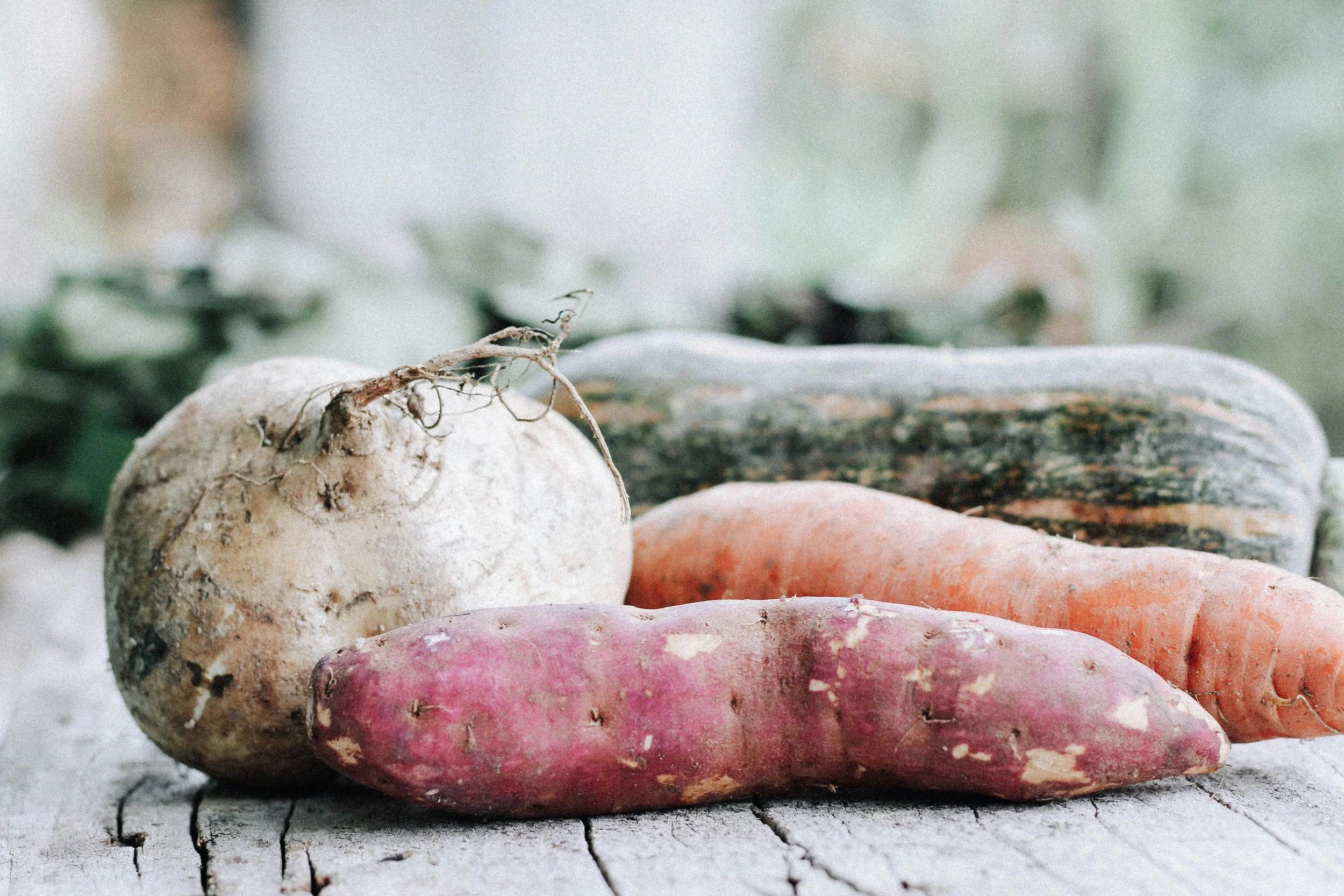Seasonal Nutrition for Vata Dosha
Quick Tips for Fall & Winter Grounding
Embrace Nature's Warming Foods:
Warm soups, stews, kitchari, butternut squash, sweet potatoes, root vegetables
Warm herbal teas with ginger, cardamom, cinnamon; warm milk with spices
Largest meal at lunch with regular eating schedule, warm breakfast porridges
Grounding comfort foods like oatmeal, rice pudding, and nourishing broths
Minimize Cold & Dry Foods:
Raw salads, cold smoothies, and refrigerated foods
Dry snacks like crackers, chips, and most raw vegetables
Bitter, astringent foods like kale, radishes, and excessive caffeine
Irregular eating patterns and skipping meals
Lifestyle Adaptations for Right Now
Work and Schedule Management:
Maintain consistent daily routines with regular meal and sleep times
Schedule demanding tasks during peak energy hours (10 AM-2 PM)
Take warming breaks with hot beverages and avoid overcommitting
Create buffer time between activities to prevent rushing and scattered energy
Physical and Environmental Modifications:
Practice gentle, grounding exercises like yoga, walking, or swimming in heated pools
Create warm, cozy spaces with soft textures, warm lighting, and minimal drafts
Daily self-massage with warm sesame or almond oil before bathing
Prioritize 7-9 hours of sleep between 10 PM-6 AM for nervous system balance
Fall & Winter Social Navigation:
Choose warming social activities like cozy dinners over outdoor events
Practice saying no to excessive socializing that depletes energy
Build recovery time between activities and honor your need for solitude
Communicate your preference for warm, intimate gatherings over large crowds
Ready to master your fall and winter wellness?
Download our FREE Vata Grocery List!
Whether you're experiencing Vata imbalance symptoms like anxiety, dry skin, constipation, or restless sleep, or you're simply seeking a more grounded way to eat during the colder months, this grocery guide makes seasonal eating simple and nourishing.

